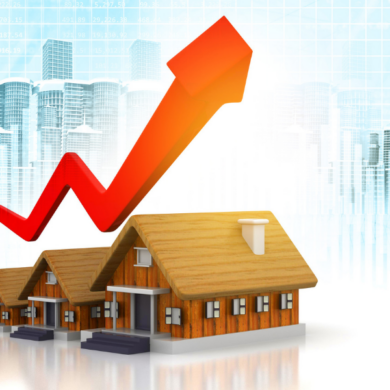
Factors affecting property value include location, property size, condition, amenities, market trends, legal issues, future infrastructure, and more – shaping real estate valuation significantly.
Understanding the factors affecting property value is essential while navigating any real estate market. Accurate property valuation not only helps buyers take informed decisions, but also ensures that developers price their assets appropriately.
From property location impact and size to market trends and future infrastructure developments, each aspect plays a significant role in determining the property market value. By exploring these elements, you can gain insights into what influences real estate valuation and how to maximise your investment potential.
Table of Contents
Importance of Understanding Factors Affecting Property Value
Exploring the factors affecting property value is vital for taking informed decisions in real estate. For buyers, it ensures their investments align with future financial goals, while for sellers, it helps set competitive prices that attract genuine interest. Accurate real estate valuation provides clarity on market positioning, minimising risks of overpaying or underselling.
Key elements such as property location impact, market trends, and future infrastructure developments highlight areas of growth potential – enabling better investment strategies. By assessing the 12 factors described in this blog, you can optimise returns and confidently navigate the complexities of any property market.
12 Factors That Affect Property Valuation
Real estate valuation is a dynamic process influenced by various interconnected factors. From the location and size of a property to legal considerations and future infrastructure developments, each element contributes significantly to determining its worth.
Understanding these factors is essential for anyone looking to buy, sell, or invest in real estate. By exploring these 12 factors that affect property valuation, you can gain deeper insights into what shapes property market value; and thus take informed decisions.
-
Location
This is one of the most significant factors affecting property value. Proximity to essential facilities, transport hubs, schools, hospitals, and destinations for shopping / leisure / entertainment can greatly influence the property’s appeal and price. A prime location often ensures higher demand and better long-term appreciation, as well as offering convenience and accessibility for everyday living.
Read More: What is Property? Definition, Types, Valuation, Taxation
-
Property Size and Layout
The size of the property and its layout directly impact its real estate valuation. Larger properties or those with well-designed layouts often attract higher valuations, due to their functionality and spaciousness. Buyers usually prioritise properties that offer efficient use of space and better adaptability, ensuring they meet diverse needs over time.
-
Age and Condition of the Property
Well-maintained properties, even older ones, tend to hold better value compared to poorly maintained or dilapidated properties. Regular maintenance, timely repairs, and aesthetic upgrades can significantly enhance the perceived worth – boosting the property market value.
-
Infrastructure Development
Future and ongoing infrastructure developments – such as new highways, expressways, flyovers, metro lines, or commercial hubs – can significantly increase property market value. These developments improve connectivity and convenience, making the area more attractive for residents and investors alike. Properties in areas with robust infrastructure growth are often in high demand for both residential and commercial purposes.
-
Market Trends
Real estate market trends, including demand and supply dynamics, significantly influence property valuation. Economic conditions, buyer preferences, and housing trends can cause fluctuations in property prices over time. Staying updated on market trends can help you take informed investment decisions, ensuring you are aligned with the property market value at any given time.
-
Legal and Regulatory Factors
Legal issues in real estate valuation – such as clear titles, zoning laws, and regulatory approvals – are essential in determining property market value. Properties with unresolved legal issues may face lower valuations due to reduced buyer interest. Compliance with legal norms ensures smooth transactions, builds trust, and increases buyer confidence – which positively impacts prices and demand.
-
Future Development Potential
The potential for future development, such as new commercial spaces, residential projects, or modern facilities, significantly influences property valuation. Areas earmarked for upcoming projects often attract attention from investors seeking long-term growth and higher returns. Properties in such areas experience an upward trajectory in demand and pricing over time, as development plans come to fruition.
-
Economic Indicators
Economic factors such as inflation, interest rates, risk / confidence perception, and employment opportunities directly impact real estate valuation. A strong economy increases buyer confidence and purchasing power, leading to higher property demand and appreciation. Conversely, a slowing economy or rising interest rates may suppress property market value by reducing affordability.
-
Surrounding Environment
Green spaces, cleanliness, and safety play a vital role, as these are some of the key factors affecting property value. Buyers prefer neighbourhoods with peaceful ambience and secure surroundings, ensuring a better quality of life. The presence of well-maintained parks and recreational facilities also positively impacts real estate valuation, by enhancing the community appeal.
Read More: Capital Gains Tax in India: A Complete Guide for Property Investors
-
Rental Yield Potential
Rental yield and property value are closely connected, especially for investors. Properties in high-demand rental markets or near business hubs often command premium valuations, due to their income-generating potential. A high rental yield indicates strong investment value, attracting both short-term and long-term buyers looking for steady returns.
-
Economic and Social Stability
The overall stability of a region significantly affects property prices. A region with consistent growth, high living standards, and minimal disruptions fosters investor interest and enhances property market value. Stable governance, reliable public services, and low crime rates make areas more desirable, directly impacting real estate valuation.
-
Developer Reputation
Buyers are willing to pay a premium for properties by reputed developers, as these are associated with quality construction, compliance, and timely possession. Trustworthy developers also enhance the long-term property valuation, by ensuring durable construction and adherence to promised specifications.
Comparative Analysis
Comparable property prices play a significant role in determining real estate valuation, by providing a benchmark against similar properties in the area. This method helps in establishing a fair market value based on factors like size, location, facilities, gated community amenities, and more. By analysing prices of recently sold properties, buyers and developers can assess the current trends and negotiate effectively.
A 2BHK apartment in Whitefield – an IT hub with excellent infrastructure in Bangalore – may be priced at ₹90 lakh, due to proximity to tech parks, reputed schools, hospitals, shopping malls, metro lines, transport hubs, highways, and more. On the other hand, a similar-sized 2BHK apartment in Hoskote, an emerging locality with fewer facilities, developing infrastructure, and limited public transport options, might be priced around ₹55-60 lakh.
This difference arises due to Whitefield’s established reputation, better connectivity through metro services, and higher demand from working professionals – making it a preferred choice for buyers and investors. While more affordable, Hoskote appeals to those seeking long-term investment potential as infrastructure development gradually improves. This comparative analysis underscores the importance of location, facilities, gated community amenities, and future development in determining property market value.
Conclusion
Understanding the 12 factors affecting property value – described in detail in this blog – is essential for taking informed real estate decisions. From location and size to market trends and future infrastructure, each aspect plays a vital role in determining the worth of a property. A detailed property valuation not only ensures fair pricing, but also helps buyers and investors assess growth potential and mitigate risks.
Whether buying, selling, or investing, you can consider these 12 factors to maximise returns and take confident decisions in a competitive property market. By leveraging insights into comparative analysis and economic indicators, you can navigate the complexities of real estate with greater clarity and success.
FAQs
1. What is property valuation?
Property valuation is the process of determining the market value of a property based on factors like location, size, condition, and prevailing market trends.
2. Why does location play a significant role in property valuation?
Location plays a significant role in property valuation because it determines proximity to workplaces, essential facilities, transport hubs, schools, colleges, hospitals, and commercial areas – all of which directly influence demand and property value.
3. How do market trends affect property value?
Market trends affect property value by influencing demand-supply dynamics, location-wise prices, and buyer preferences – which dictate the competitiveness and desirability of properties.
4. Does the age of a property affect its value?
Yes, the age of a property affects its value by influencing buyer perceptions, as newer or well-maintained properties usually attract higher valuations compared to older or poorly maintained ones.
5. How do amenities influence property value?
Amenities influence property value by enhancing convenience, appeal, exclusivity, and social connect – with clubhouses, swimming pools, gyms, sports facilities, landscaped gardens, children’s play areas, and recreational amenities in gated communities driving up market value and buyer interest.
6. What is the role of rental yield in property valuation?
The role of rental yield in property valuation is that it indicates the income potential and ROI of a property, making it an important metric for investors seeking steady returns.
7. Should I hire a professional for property valuation?
Yes, you should hire a professional for property valuation, to ensure accurate assessment of the property market value, and to consider all factors that avoid mispricing or undervaluation.
8. What are the factors affecting property value?
The factors affecting property value are location, size, condition, market trends, legal compliance, facilities, amenities, and future development potential.
9. What are the four factors that create the value of a property?
The four factors that create the value of a property are utility, scarcity, demand, and transferability, which determine its appeal and marketability.
10. What are the factors affecting building valuation?
The factors affecting building valuation are construction quality, design, age, maintenance, materials used, location, and compliance with safety and legal standards.
11. What decreases property value the most?
Factors that decrease property value the most are poor location, lack of maintenance, unresolved legal issues, and declining neighbourhood safety.
12. What are the five factors of value?
The five factors of value are demand, utility, scarcity, transferability, and external influences such as market trends or infrastructure development.
13. Which factors affect the size of a house?
Factors that affect the size of a house are plot dimensions, architectural design, zoning regulations, and the intended functionality of the property.
14. What affects the value of an asset?
Factors that affect the value of an asset are its utility, demand, scarcity, market conditions, physical condition, and future earning potential.









